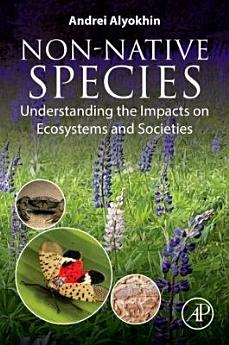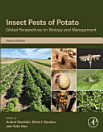Non-Native Species: Understanding the Impacts on Ecosystems and Societies
Andrei Alyokhin
Apr 2026 · Academic Press
Ebook
380
Pages
family_home
Eligible
info
infoThis book will become available on April 1, 2026. You will not be charged until it is released.
About this ebook
Presently, virtually no areas on Earth remain sheltered from the arrival and establishment of non-native plants, insects, and animals, in large part due to human activities. Failure to address this issue may have dire consequences, including disruption of vital ecological processes, loss of agricultural, forestry, and fishery resources, and even serious disease epidemics within human populations. At the same time, most non-native species are not invasive, and attempts to eradicate them may themselves result in environmental, economic, and even social damage. Non-Native Species: Understanding the Impacts on Ecosystems and Societies provides a comprehensive introduction to the issues surrounding invasion biology, which is a prominent, but sometimes controversial, area of applied biology. It will cover the mechanisms of natural and human-mediated biological invasions, their consequences from ecological, economic, political, and ethical perspectives, and discuss management options available for prevention and/or mitigation of the negative impacts of invasive species. Written by an entomologist who studies invasive insects and plants and has spent over 20 years teaching a course on biological invasions, Non-Native Species: Understanding the Impacts on Ecosystems and Societies offers anecdotes, insights, and case studies from the author's own work and research. This book is an ideal reference for early career researchers with an interest in invasion ecology, or an ideal course companion for students at the undergraduate and graduate levels enrolled in courses on invasive species, non-native species, or biological invasions, particularly those who plan to major, minor, or concentrate in entomology. - Covers biologiocal invasions for undergraduate and graduate students as well as early career researchers - Offers ecological, economic, political, and ethical perspectives on non-native species - Includes unique and engaging case studies from the author's work in entomology, plant science, and IPM
About the author
Dr. Andrei Alyokhin received B.S. degree in Education in Biology and Chemistry from Moscow Pedagogical State University in Moscow, Russia. He then completed a Ph.D. in Entomology at the University of Massachusetts in Amherst, advised by Dr. David Ferro. After doing post-doctoral work at the University of Hawaii under the supervision of Dr. Russell Messing, he joined faculty at the University of Maine in January of 2001 as an Assistant Professor of Applied Entomology. He was promoted to Associate Professor in 2007, and then to Professor in 2013. He also served one term as a Director of the School of Biology and Ecology.Dr. Alyokhin is interested in applied insect ecology, behavior, evolution of insecticide resistance, and integrated pest management. He is working mostly in potato agroecosystems, although recently he also started looking at insect mediated recycling of organic wastes. Dr. Alyokhin has authored or co-authored 181 publications, including 83 peer-reviewed articles in scientific journals. He also taught or co-taught Insect Ecology, Pesticides and the Environment, Biological Invasions, Introductory Applied Entomology, Evolution, Advanced Insect Pest Ecology and Management, Capstone Experience in Biological Sciences, and Professionalism in Biology. In addition, Dr. Alyokhin maintains an extensive outreach program to a variety of stakeholders, including potato growers, other crop production professionals, natural resource managers, K-12 students, and members of the general public. He is a recipient of several professional awards from Entomological Society of America, National Association of County Agricultural Agents, Aroostook County Extension Association, College of Natural Sciences, Food, and Agriculture at the University of Maine, and the U.S. National Park Service.
Reading information
Smartphones and tablets
Install the Google Play Books app for Android and iPad/iPhone. It syncs automatically with your account and allows you to read online or offline wherever you are.
Laptops and computers
You can listen to audiobooks purchased on Google Play using your computer's web browser.
eReaders and other devices
To read on e-ink devices like Kobo eReaders, you'll need to download a file and transfer it to your device. Follow the detailed Help Center instructions to transfer the files to supported eReaders.





